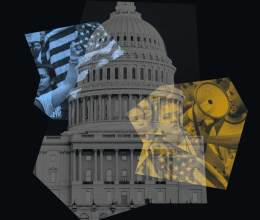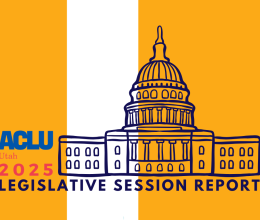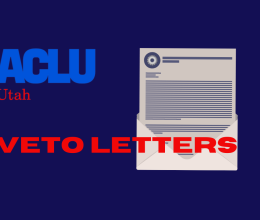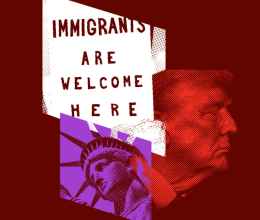
President-elect Donald Trump has said that he intends to issue an executive order to end birthright citizenship for millions of children. Trump’s campaign website states that, to qualify as a citizen, any baby born after his executive order would need to have at least one parent who is a citizen or lawful permanent resident. Scholars across the political spectrum agree that this proposal is clearly unconstitutional because it plainly violates the 14th Amendment. The ACLU breaks down why.
The Constitution Protects Birthright Citizenship
With extremely limited exceptions, the 14th Amendment’s citizenship clause provides that all children born in the U.S. are citizens. The birthright citizenship rule comes from English common law and dates back centuries. This rule was briefly rejected by Dred Scott v. Sandford when the Supreme Court denied citizenship to the descendants of slaves. This shameful attempt to deprive natural-born Americans of their rights was later rectified by the 14th Amendment, which has safeguarded birthright citizenship ever since.
The citizenship clause states: “All persons born or naturalized in the United States and subject to the jurisdiction thereof, are citizens of the United States and of the State wherein they reside.” Today, there is only one group that is not “subject to the jurisdiction” of the U.S.and thus does not attain birthright citizenship: children born to foreign diplomats who are protected by sovereign immunity and are therefore not “subject to the jurisdiction” of the U.S.
Whether a U.S.-born child’s parents are U.S. citizens does not impact whether that child is a citizen. This principle was upheld in United States v. Wong Kim Ark, in which the Supreme Court confirmed more than 100 years ago that a child born in the U.S. to Chinese parents—who at that time were prohibited from becoming U.S. citizens—was a citizen under the 14th Amendment.
Trump Can't Actually Override the 14th Amendment's Protections
Only constitutional amendments, not executive orders or legislation, can change the Constitution.
That’s why scholars have overwhelmingly condemned earlier, failed attempts by some state and federal lawmakers to pass legislation that denies citizenship to the U.S. born-children of undocumented noncitizens as unconstitutional. Because even Congress could not alter the constitutional right of birthright citizenship, a president certainly cannot do so by unilateral executive action.
Birthright Citizenship is Fundamental to American Life
Birthright citizenship has allowed the U.S. to become a vibrant, dynamic nation of people whose families come from every country on earth.
In the past, efforts to limit birthright citizenship, including the Dred Scott decision, resulted in grave injustice. In a nation committed to the principles of equality, fairness, and opportunity, every child born in the U.S. should be born with the same rights as every other child. The alternative — creating a permanent, multigenerational subclass of people born in the U.S. who are denied full rights — would repeat one of the worst errors in American history.
The 14th Amendment ensures that no politician can ever decide who among those born in our country is worthy of citizenship. In the face of the Trump administration’s threats, the 14th Amendment’s protections continue to safeguard the rights of every person born in this country.







